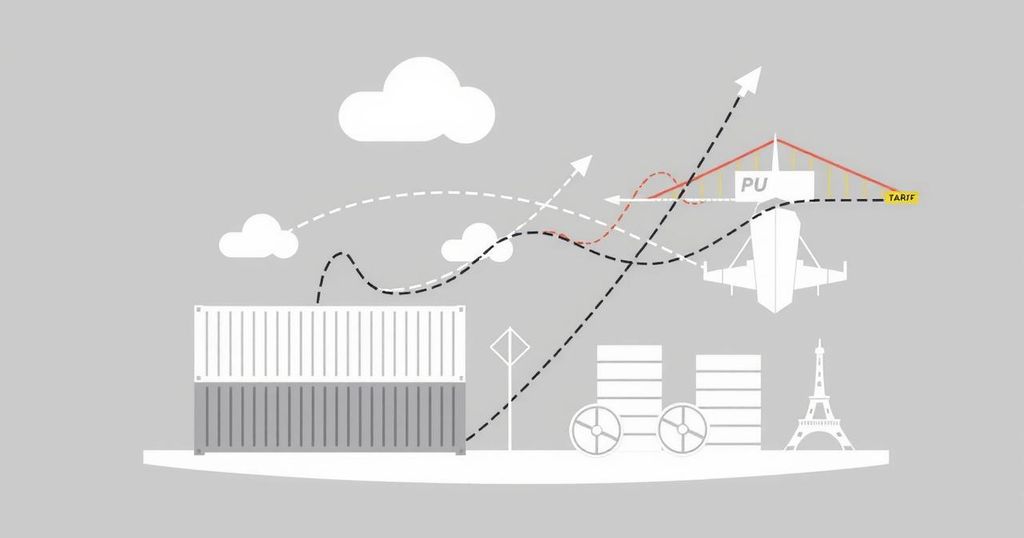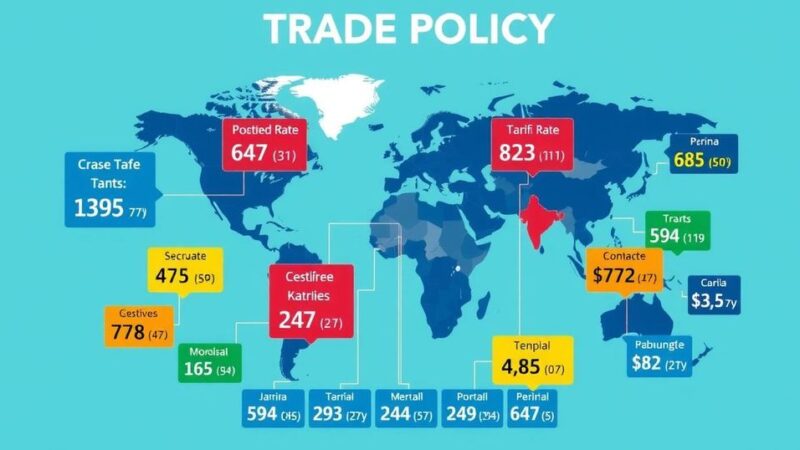Donald Trump’s proposed reciprocal tariffs will target all countries engaged in trade with the U.S., aiming to correct trade imbalances. India may reduce customs duties on U.S. auto parts to strengthen trade ties. Trump views tariffs as necessary protection for the U.S. economy, despite concerns of a trade war and rising prices.
Former President Donald Trump has announced plans to implement reciprocal tariffs targeting all countries involved in trade with the United States. These tariffs are intended to address significant trade imbalances and to serve as a tool for negotiating better trade terms. While White House economic adviser Kevin Hassett indicated the focus would be on approximately 10 to 15 countries, he did not disclose specific identities.
In conjunction with these developments, India is contemplating measures to reduce or remove customs duties on U.S. auto parts, aiming to reinforce trade relations without adversely affecting its domestic industry. Trump perceives tariffs as a necessary safeguard for the U.S. economy against unfair competition, despite growing market concerns regarding a potential trade war and the resultant economic implications.
Trump has reaffirmed his determination to enforce reciprocal tariffs against countries imposing duties on American exports, with the potential to adjust rates to align with existing tariffs in other nations. Presently, he is discussing the imposition of import taxes on several countries, including the European Union, South Korea, Brazil, and India, following the recent enactment of a 25% tariff on automobiles.
This self-designated “Liberation Day” initiative reflects Trump’s assertion that foreign entities have been disproportionately benefiting from trading relationships at the expense of American interests. He has dismissed the notion that tariffs will escalate vehicle prices, suggesting that increased costs for foreign cars will result in higher sales of American-made vehicles.
Although Trump intends to maintain flexibility in tariff implementation, further tariffs are being prepared, encompassing pharmaceuticals, lumber, and oil from Venezuela. China also faces a 20% tariff due to its involvement with fentanyl production, alongside additional tariffs concerning imports from Canada and Mexico. Officials have justified these tariffs as leverage for trade negotiations or tools to address border security, with the aim of fostering greater respect for American trade policies.
In summary, former President Donald Trump intends to enforce reciprocal tariffs aimed at all nations to rectify trade imbalances, while India seeks to enhance its trade link with the United States by potentially reducing tariffs on auto parts. Despite the risk of a trade war and inflationary pressures, Trump views these tariffs as essential protections for American interests. His administration’s focus extends to additional tariffs on various goods, enhancing the complexity of international trade relations.
Original Source: m.economictimes.com






